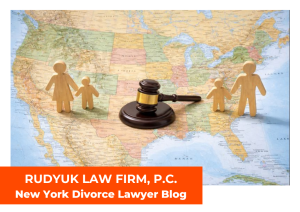 In interstate and international custody disputes, even the most urgent requests can be denied if the court lacks proper jurisdiction over a parent. In other words, procedural rules governing service of process and notice are not mere technicalities but fundamental safeguards that ensure fairness and due process. A recent New York decision demonstrates how failures in service can invalidate custody orders entirely, even after a court has granted sole custody by default. If you are involved in a custody dispute that crosses state or international borders, it is critical to consult an experienced New York family law attorney before taking action that could later be vacated.
In interstate and international custody disputes, even the most urgent requests can be denied if the court lacks proper jurisdiction over a parent. In other words, procedural rules governing service of process and notice are not mere technicalities but fundamental safeguards that ensure fairness and due process. A recent New York decision demonstrates how failures in service can invalidate custody orders entirely, even after a court has granted sole custody by default. If you are involved in a custody dispute that crosses state or international borders, it is critical to consult an experienced New York family law attorney before taking action that could later be vacated.
History of the Case
It is reported that the parties are the parents of a child subject to a prior custody order issued in another state, which granted the mother primary custody. Allegedly, the father later filed a petition in New York Family Court seeking to modify that out-of-state custody order and obtain sole legal and physical custody of the child. The mother was living outside the United States at the time the petition was filed.
Allegedly, the Family Court granted the father’s petition on default after authorizing service on the mother by email and directing the initiation of international service. The court awarded the father sole legal and physical custody of the child without visitation to the mother. It is alleged that the mother later moved to dismiss the proceeding and vacate the custody order, arguing that the court never acquired personal jurisdiction over her due to improper service. The Family Court denied that motion, and the mother appealed. Continue reading
 New York Divorce Lawyer Blog
New York Divorce Lawyer Blog


 In New York family law, few issues are as emotionally charged as disputes over a parent’s right to consent to a child’s adoption. When a parent has been absent from a child’s life for years, courts must weigh the child’s stability, safety, and emotional needs against the parental rights of a biological parent seeking renewed involvement. A recent New York
In New York family law, few issues are as emotionally charged as disputes over a parent’s right to consent to a child’s adoption. When a parent has been absent from a child’s life for years, courts must weigh the child’s stability, safety, and emotional needs against the parental rights of a biological parent seeking renewed involvement. A recent New York